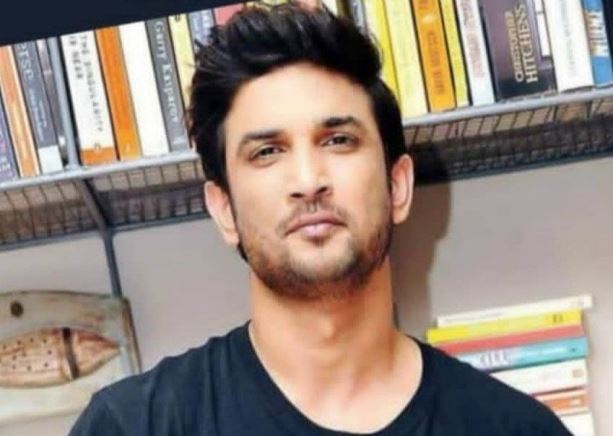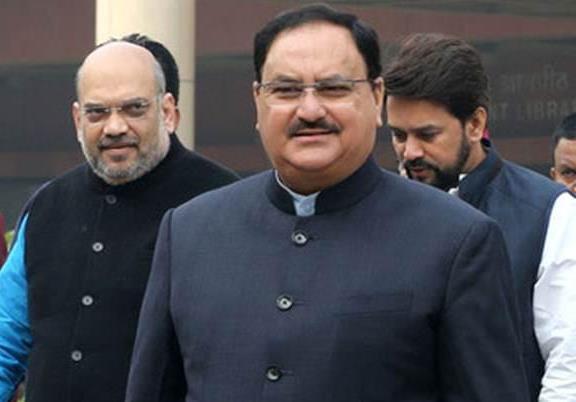It is a month since Bollywood actor Sushant Singh Rajput
died by suicide but there is no let-up in the controversial and often unsubstantiated
revelations which are continuously being aired by television networks on his
untimely demise, particularly since the case acquired political overtones.
From an initial discussion on
mental health of actors to nepotism in the Hindi film industry and
discrimination against outsiders, 34-year-old Rajput’s death has degenerated
into an all-out war between the Maharashtra and Bihar governments which are
currently led by opposing political coalitions.
It is no coincidence that the
Bihar government, led by National Democratic Alliance partners, Janata Dal (U)
and the Bharatiya Janata Party, has upped the ante on this case as the state
assembly elections are due in a few months. Bihar chief minister Nitish Kumar’s
popularity ratings have dipped in recent weeks as the state machinery is unable
to cope with the rising cases of coronavirus.
Fighting with his back to the
wall, the Rajput case has proved to be a handy diversion for Nitish Kumar who
has successfully deflected public attention by decrying the Maharashtra
government’s tardy investigation into the death of Bihar’s son Rajput. It helps
that the Maharashtra government is headed by his coalition partner BJP’s bete noire Shiv Sena.
It suits the Janata Dal (U)
and the BJP to build pressure on the Maharashtra government by keeping up the
narrative on Rajput’s “mysterious death”. In Bihar, the two parties have an eye
on the Rajput vote, a small but influential community which has been demanding
justice for the actor.
It is not just the JD(U) and the BJP which are eyeing the
Rajput vote but opposition parties, including the Rashtriya Janata Dal and the
Congress, have also joined the race. The two parties joined the chorus for a
probe by the Central Bureau of Investigation when the issue figured in the
state assembly when it met recently for a day to discuss the COVID-19 situation
in the state.
BJP legislator Neeraj Kumar
Singh, the actor’s cousin, raised the demand first, drawing instant support
from across the political spectrum. Leader of opposition Tejashwi Yadav of the
RJD went a step further and proposed that the upcoming film city at Rajgir be
named after Rajput while Congress leader Sadanand Singh suggested that the
assembly adopt a resolution demanding an inquiry by the Central agency.
If tempers are running high
in Bihar, it is no different in Maharashtra. Always on the lookout for issues
on which it can discredit the Uddhav Thackeray government, the BJP feels the
Rajput case is a potent weapon to mount an effective attack against the chief
minister and his son Aditya Thackeray. Former Maharashtra chief minister
Narayan Rane and his son Nilesh have been particularly vocal and even suggested
that Rajput was murdered. They have demanded that Aditya Thackeray should step
down as minister to facilitate a fair probe since his name has figured during
the course of a hearing in the Supreme Court.
Finding himself under constant
attack, Aditya Thackeray broke his silence to deny his involvement in the case
while his Shiv Sena colleagues are putting up a stout defence in his favour.
Senior party leader Sanjay Raut, who has been at the forefront in hitting out
at the BJP, described its allegations as a “political conspiracy”, aimed at
maligning the government because the opposition did not succeed in toppling it.
Though the controversy regarding Rajput’s
death had been simmering since he was found hanging in his Bandra apartment on
July 14, it picked up pace after the Bihar police registered a case against the
actor’s girlfriend Rhea Chakraborty and others on July 25 following a complaint
filed by the dead artist’s father KK Singh. The charges ranged from cheating,
abetment to suicide and wrongful confinement.
On cue, the Bihar government
dispatched a team of police officers to Mumbai to investigate the case. Furious
at this interference, the Maharashtra government retaliated by placing Vinay
Tiwari, the leader of the Bihar police squad, under quarantine by citing
existing guidelines for containing coronavirus.
At the same time, the
Maharashtra police made it clear that the Bihar police has no jurisdiction to
investigate the matter in their state as the incident took place in Mumbai.
Moreover, it said, it was already in the process of investigating Rajput’s
death. The Bihar police charged that the Maharashtra police was deliberately
going slow in this matter as it was protecting an important person (read chief
minister Uddhav Thackeray’s son and minister Aditya Thackeray) whose name is
said to have surfaced during the investigations.
This opened the floodgates
further as charges and counter-charges have been flying thick and fast. Faced
with an obdurate Maharashtra government and under all-round pressure from
political parties in Bihar, an angry Nitish Kumar proposed that the case be
handed over to the Central Bureau of Investigation. It was not surprising that
the request was accepted with alacrity by the BJP-led ruling alliance at the
Centre. Normally a demand for a CBI probe is made by the state government where
the crime has occurred. In this instance, rules were conveniently bypassed by
the Centre which acceded to the Bihar government’s demand even though the
incident took place in another state.
Meanwhile, the case gets
murkier by the day. Besides the CBI, the Enforcement Directorate has been
summoning the actor’s girlfriend and other associates for questioning. Rajput’s
father has accused Chakravorty of siphoning off Rs. 15 crore from his son’s
bank account, of overdosing him with drugs and creating a wedge between the
actor and his family.
Needless to say, the media
has had a field day reporting and “investigating” this case. It has essentially
declared that Chakravorty is guilty. Breathless and excited reporters on
television news channels have, with leaks from helpful sources, accessed
details of Rajput’s holidays with his girlfriend and provided “breaking news”
about the actor’s finances and mental health in back-to-back coverage.
Chakravorty is predictably the villain of the piece.
With Bihar elections a few
months away, it can be safely said that interested political parties will
continue to work doubly hard to ensure that the Rajput case remains centrestage.


